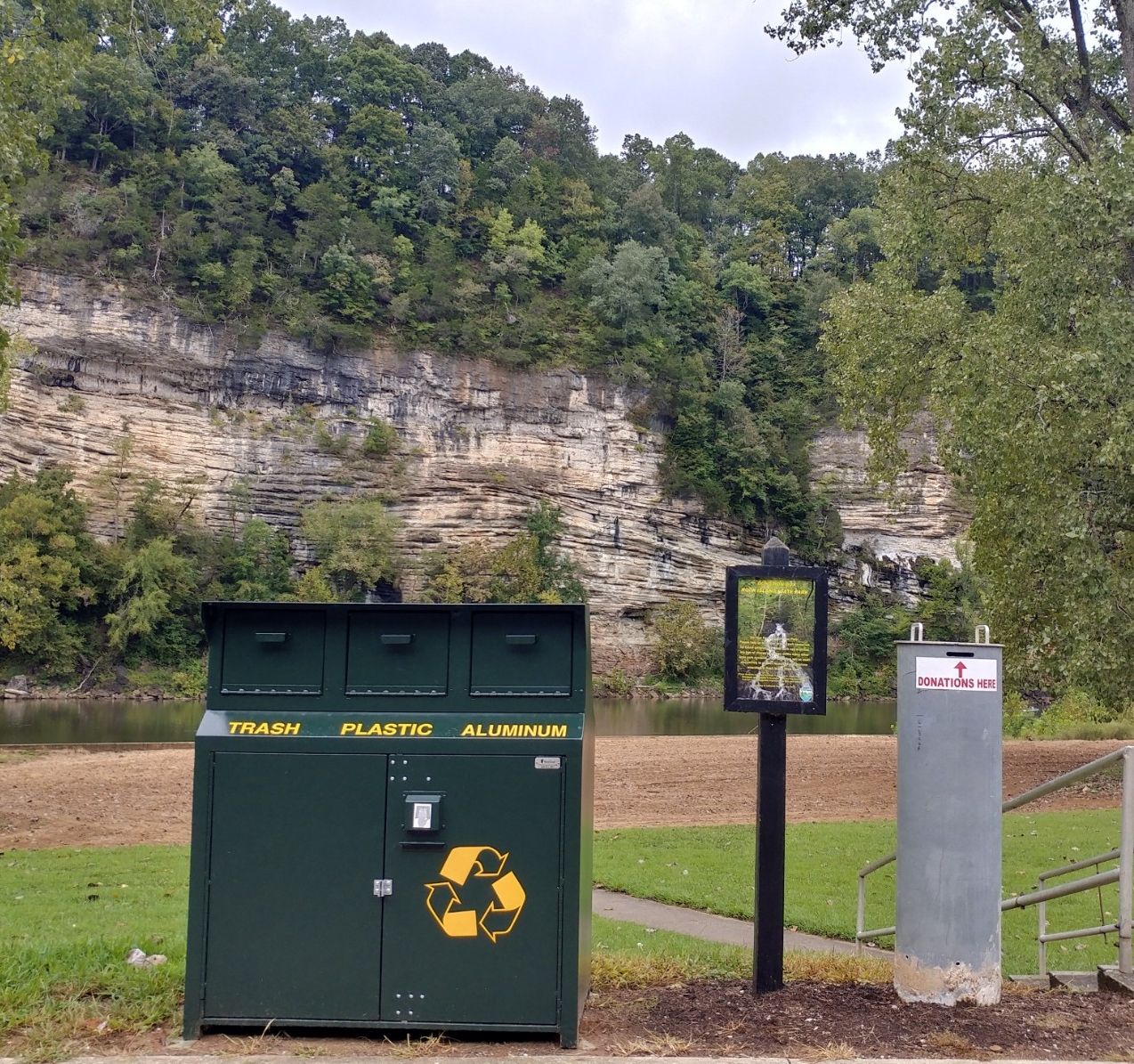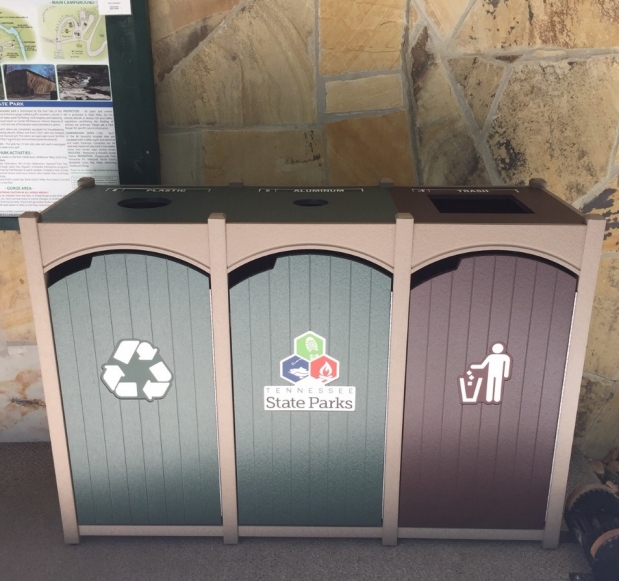Go Green With Us
Go Green With Us is a partnership between TN State Parks' staff and visitors to become better stewards of our natural and financial resources through the integration of common sense sustainability practices into park management and operations. Go Green With Us began in January 2015 as a recycling initiative for TN State Parks. A Go Green With Us Committee was formed including representatives from TN State Parks, Office of Sustainable Practices, and other divisions within TDEC. This committee compiled a comprehensive guide to outline the many actions staff and visitors can take to effectively incorporate environmental sustainability into all aspects of park operations.
The 9 sustainability categories in this guide contain approximately 100 prerequisite actions and 215 recommended actions. Many of the actions are practices that already exist in the parks, and others require some effort to put into place. The 9 categories include: Education and Outreach, Energy Efficiency, Green Offices, Habitat and Resource Protection, Guest Services, Maintenance Procedures, Recycling and Waste, Transportation, and Water Conservation.
In the first year the TSP Go Green Guidelines were launched (2017-18), it was a voluntary program for parks to implement the guidelines as they were able. Each park has a designated Go Green representative that is responsible for coordinating the park’s implementation of the guidelines and to report progress. As of October 2018, the implementation of the Go Green Guidelines is mandatory for all parks. Parks are required to execute the basic prerequisites in each category for the items that apply to the park. Together, we can become a greener and more environmentally responsible park system and stewards of natural resources. It takes cooperation from all staff members and visitors to make this plan a success and to reach our Go Green goal of protecting and preserving our State Parks through resource conservation, sustainable operations, and recycling.
Learn more about the Go Green Guidelines and recognition program
TN State Parks Recycling Upgrades

Pictured above is a new BearSaver bin at Rock Island State Park. BearSaver recycling receptacles are ADA compliant and pest proof which are perfect for TN State Parks, their guests, and their native wildlife. Over 400 receptacles were purchased to fully cover all 56 State Parks. Read more about BearSavers in TN State Parks.

Recycle Away interior recycling receptacles were purchased and installed following the BearSaver receptacles. These bins are made from pure recycled HDPE and meet all LEED requirements for recycled content. Over 170 containers were purchased to provide recycling at all state park visitor's centers, museums, venues, group cabins, and other guest buildings.
TN State Parks recently implemented recycling upgrades at all 56 State Parks as part of a broader initiative known as the Go Green With Us program. The overall goal of the upgrades is to create a recycling program with a uniform appearance at all TN State Parks to better inform visitors of their options for waste disposal. Through a partnership with the Division of Solid Waste Materials Management Program, Office of Sustainable Practices, and TN State Parks, we are able to not only divert waste from landfills, but also increase awareness of the importance of recycling to state park visitors.
The upgrades were completed in three separate phases. The first phase implemented BearSaver recycling receptacles for all exterior locations. The second phase implemented Recycle Away interior recycling receptacles for all park buildings and venues. The third phase is currently ongoing and will add educational signage for guests regarding the Go Green With Us program, recycling, and what they can do to reduce their footprint while visiting the park. These recycling upgrades will allow us to meet the needs of our visitors and uphold our responsibility to protect Tennessee's public lands and natural resources.

Kelsey Davis
TN State Parks Sustainability Coordinator
Office of Sustainable Practices
731-431-7856
kelsey.davis@tn.gov